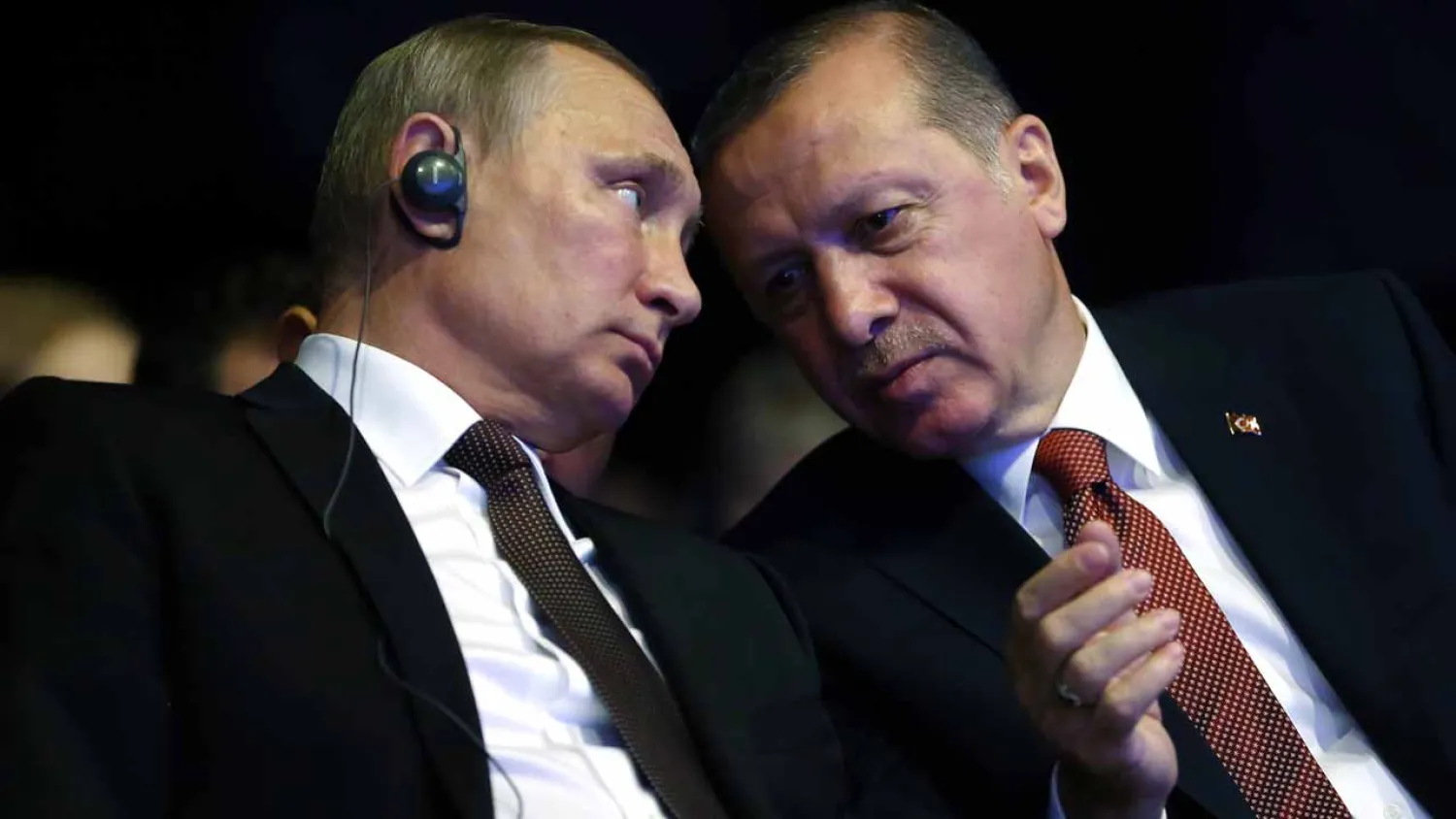The topic of the “Idlib ceasefire” dominated on Thursday talks held between Turkish President Recep Tayyip Erdogan and his Russian counterpart Vladimir Putin in Ankara.
Informed sources told Asharq Al-Awsat that Erdogan and Putin discussed “an agreement stipulating the deployment of forces to patrol the de-escalation zone of Idlib in the northwest of Syria in addition to the final picture that would emerge in this area and the way those forces will be positioned.”
Moscow wants the Turkish presence in the area to be restricted to the level of observers while Ankara insists to infiltrate by land to destroy Hay’at Tahrir al-Sham that includes Fatah al-Sham faction.
Another controversial point emerged in the summit related to the latest Russian airstrikes that targeted civilians and opposition factions that are not listed as terrorists, while Moscow said that it only targeted Hay’at Tahrir al-Sham positions.
Both sides also discussed the topic of the “S-400” missiles after the Turkish president asked his Russian counterpart to speed up the delivery of the advanced air defense systems and to start their deployment to allow Turkish soldiers be trained on their use.
A few days ago, Russia’s Undersecretary for Defense Industries İsmail Demir has said that his country may start the delivery of its S-400 air defense system to Turkey as early as within the next two years.
Separately, at the end of a summit held on Thursday in the town of Rmeilan in the northeast of Syria, Syria's Kurdish Democratic Union Party (PYD) elected Shahuz Hassan and Aisha Hesso, as the two new co-leaders of the party replacing former PYD chief Salih Muslim and his co-chair Asia Abdullah who had both ruled the party since 2010.
The new co-chair, Hassan, told Asharq Al-Awsat on Thursday he was ready to negotiate with the regime on a “democratic rule that we see as a comprehensive solution to all Syria.”









